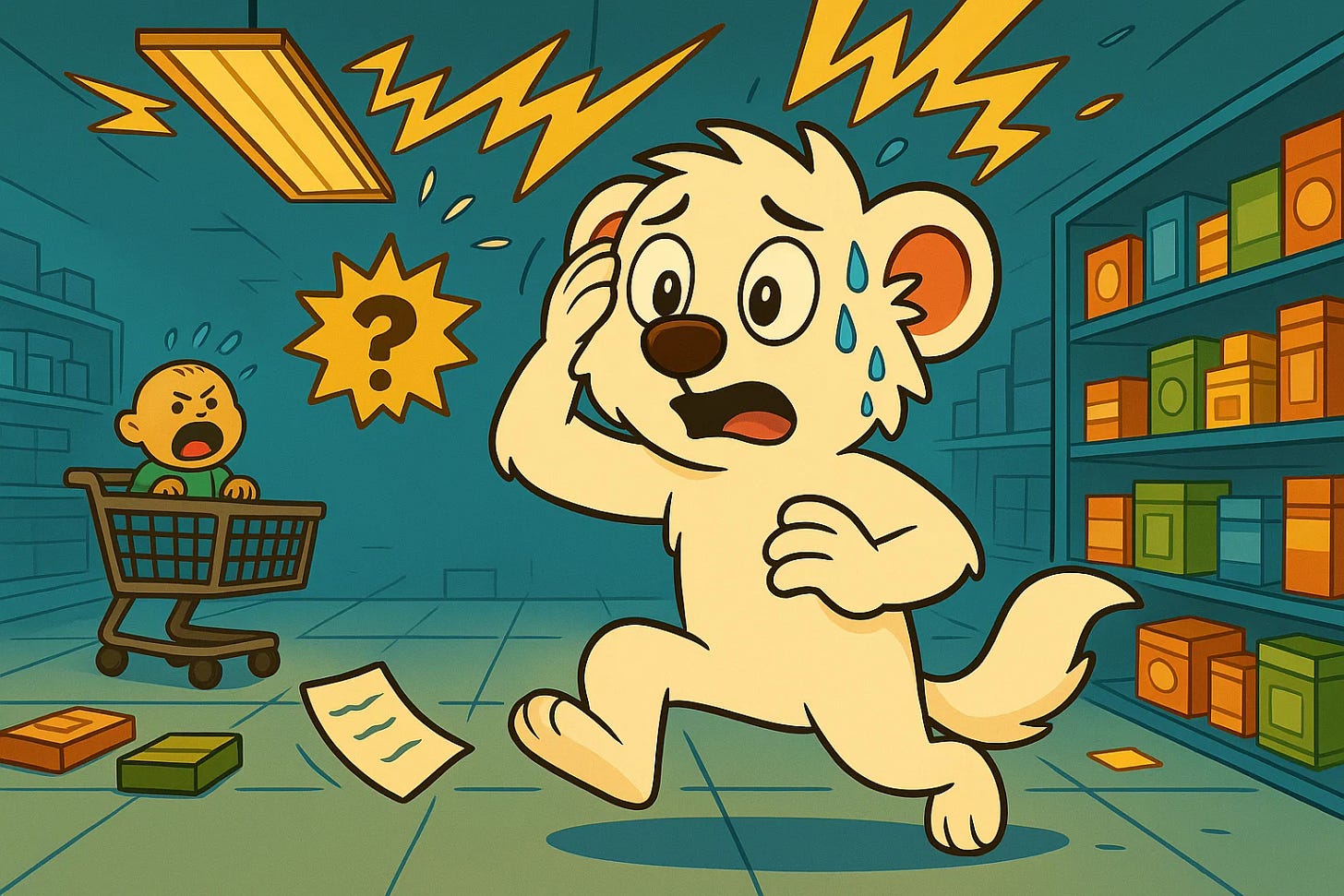ADHD and Sensory Overload: When the world feels too loud
Ever left a store with nothing but exhaustion? You’re not alone. This issue explores why sensory overload hits so hard for ADHDers, and what to do about it.
You’re in the grocery store, determined to grab just a few things. Ten minutes in, the fluorescent lights feel like they’re too bright, drilling into your skull. A baby starts wailing three aisles over. The cart’s wobbly wheel thuds with every step. You feel sweat on your back. Your chest tightens with each new sensation. You grip the handle tighter, blink back frustration, and tell yourself to just grab what you need and get out, but your brain is already in shutdown mode. You freeze in the middle of the aisle, suddenly unsure what you came for. You leave with a single item exhausted, overstimulated, and wondering why something so basic can feel so impossible.
If you’ve ever felt attacked by ordinary sights, sounds, or touches, you’re not alone. Many adults with ADHD experience moments like this. You’re not “too sensitive” or imagining it. Sensory overload is a real part of ADHD that often flies under the radar. Let’s talk about why it happens and, more importantly, what you can do about it to find a little more calm in the chaos.
As always, stick around to the end. Our Apply It worksheet on coping with sensory overload is waiting for paid subscribers. Here’s what one reader told us recently:
I really just like getting the worksheets and being able to go back into the archives. That consistent, gentle encouragement and support, with practical solutions, is why I stay as a paid member.
Why sensory overload happens
Ever wonder why your brain seems to short-circuit in a crowded café or under harsh office lights? ADHD doesn’t just affect focus and impulse control, it can also dial up the volume on your senses.
Researchers have found that people with ADHD often have atypical sensory processing. A 2025 meta-analysis of 30 studies confirmed that individuals with ADHD experience significantly more intense sensory symptoms across the board, from being extra sensitive to stimuli to actually seeking more stimulation, compared to those without ADHD. In plain terms, the ADHD brain tends to register sensory information differently. Small sounds or lights that barely register for someone else might hit you like a tidal wave.
Why does this happen? One big reason is the brain’s filtering system. Normally, your brain acts like a sensory bouncer: it filters out unimportant sights and sounds so you’re not consciously processing every single thing. In ADHD, that filter can be a bit leaky. Studies using EEG show that adults with ADHD have weaker “sensory gating” – the mechanism that screens out repetitive or irrelevant inputs. Essentially, more stimuli flood into awareness, which can make the world feel overwhelming. Imagine trying to have a conversation while 20 TV channels play at once. That’s a taste of what sensory overload in ADHD can be like.
Interestingly, sensory overload in ADHD is not one-size-fits-all. You might be hypersensitive in some ways – bothered by tags on clothing, loud music, strong smells – yet hyposensitive in others, seeking more input (like craving intense flavors or needing music on to focus). That same 2025 meta-analysis found that ADHD brains crave stimulation but can quickly get over-stimulated, a frustrating paradox.
There’s also a tight interplay between sensory overwhelm and emotions. If you’re already anxious or stressed, your threshold for sensory input plummets and suddenly every noise or touch sets you off. Now let’s look at everyday strategies you can use to navigate sensory overload.
Strategies to navigate sensory overload
You can’t (and shouldn’t) eliminate all sensory input, but you can prevent and manage that overload feeling. Here are a few ADHD-friendly tactics:



